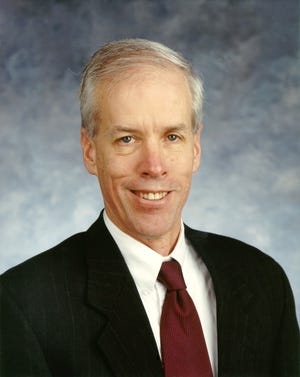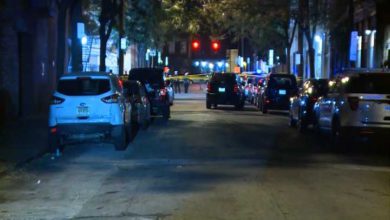
LOUISVILLE, Ky. — Amid a national groundswell against critical race theory in schools, a Kentucky lawmaker has prefiled a bill to limit conversations around systemic racism in classrooms.
Bill Request 60, prefiled Tuesday by Rep. Joseph Fischer, R-Ft. Thomas, would prohibit public K-12 schools from using curriculum or supplemental learning materials that would teach students that one race or sex is "inherently superior."
Teachers could not use materials "promoting division between, or resentment of" different groups, including different socioeconomic classes and racial identities.
Schools would not be able to teach that an individual is "inherently racist, sexist, or oppressive, whether consciously or unconsciously" due to their race or sex, the bill says.
Related: What is critical race theory?
Teachers would not be allowed to say the country is "fundamentally or irredeemably racist or sexist." They also would not be allowed to promote or advocate for a "violent overthrow of the United States government," the bill adds.
Fischer's bill request does not specifically ban critical race theory — an academic framework used to examine how systems and institutions may perpetuate racial disparities.

A citizen would be able to file a complaint with the Attorney General if they think a teacher discusses any of the barred topics, the bill says. If the Attorney General finds a violation, and the violation continues, schools would lose $5,000 in state funding per day.
Fischer did not immediately respond to a request for comment on the bill. A spokeswoman for the House GOP also did not respond.
More: McConnell to education officials: Drop 'activist indoctrination' history priorities
Gov. Andy Beshear, a Democrat, said the bill's premise is "more than a little concerning."
"I think once you start legislating what can and can't be taught in schools, especially in the framework of politics, it gets really dangerous," Beshear said, when asked about it during a Tuesday COVID-19 press conference.
The bill's prefiling, which comes months ahead of the 2022 legislative session, comes during a national push by conservatives to restrict how teachers can discuss topics involving race in their classrooms.
"I knew it would be just a matter of time before Kentucky hopped on this bandwagon," Hannah Drake, a Louisville-based writer and activist, tweeted Tuesday in response to the bill.
"This is not only educational censorship, but a reaffirmation of white supremacy by barring teachers from discussing it in a substantive way," Ricky Jones, the chairman of the Pan-African Studies department at the University of Louisville and a Courier Journal columnist, tweeted.
School districts across the country have been working to correct racial disparities in classrooms, including gaps in test scores and discipline between students of color and their white classmates. Racial diversity and equity efforts in schools have increased over the past year as the nation found itself in the middle of a racial justice reckoning.
Jefferson County Public Schools, the state's largest district, implemented a multi-pronged racial equity plan in early 2019 designed to improve outcomes for students of color.
Part of those efforts, Superintendent Marty Pollio said, includes "expanding the curriculum to better represent the student population we serve." The majority of JCPS students identify as a racial minority.
Pollio said he opposes Fischer's bill, adding it could "potentially disrupt our plans to reduce the achievement gap in JCPS.
"In JCPS, we believe all of our students deserve to feel a sense of belonging in their school and in the curriculum, and research clearly shows that a student’s sense of belonging improves academic outcomes," Pollio continued. "How can we expect students to succeed if they do not see themselves and their history in the curriculum?"
Bills filed in states including Tennessee and Texas — which are similar to the one filed in Kentucky — would stifle honest conversations about current events and the role of racism in the nation's history, opponents have warned in other states.
Kentucky Education Commissioner Jason Glass said in a statement Tuesday that he opposes "efforts to limit free speech" and "politically-driven efforts to micromanage our local classroom teachers."
"Discussing difficult issues is how we prepare our students to be citizens in our democratic republic and our state has a long tradition of empowering our local educators to make the best decisions for their students," Glass continued. "I am disappointed to see efforts to limit the free exchange of ideas enshrined in our Constitution and big-government over-reach into local classrooms emerge from our state legislators.”
Lauren Niemann, a JCPS high school science teacher, said the bill would limit conversations about environmental justice that come up with students in lessons ranging from anatomy to environmental science.
"To prohibit that discussion would be to censor truth," she tweeted.
Fischer's bill also has a section banning any student in a public postsecondary institution from being required to "engage in any form of mandatory gender or sexual diversity training or counseling."
Oklahoma passed a bill with similar language last month, which drew criticism as an anti-LGBTQ law by the Human Rights Campaign.
The 2022 legislative session begins in January.
Reach Olivia Krauth at [email protected] and on Twitter at @oliviakrauth.








